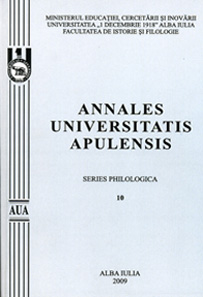The Role of Culture and Collocations in Foreign Language Teaching
The Role of Culture and Collocations in Foreign Language Teaching
Author(s): Gabriela Mocan, Mariana TomaSubject(s): Foreign languages learning
Published by: Universitatea »1 Decembrie 1918« Alba Iulia
Keywords: culture; collocations; habits of speech; social usage; communication; methodology; teaching materials; proficiency
Summary/Abstract: The present paper aims to show how culture and language converge in the acquisition of a foreign language, and how becoming aware of the efficiency of this approach one can achieve significant progress in the learning process and, eventually, get to proficiency. Culture is usually seen emerging directly out of the language and seems to be derived from it, and the other way round, “a language is regarded chiefly as a means for encoding a particular culture or world view represented by the things that people say (or write) to achieve particular social and communicative purposes.” (Pawley, 2007:35). It appears as a corrective to habits of speech guiding the use of forms in actual conversation. Therefore, students learning a foreign language have to permanently adjust and reorient their sense of reference to the existence of different linguistic patterns that are culturally specific. This is learning a social usage in tandem with language forms, a usage that is not encapsulated in the forms. The language instructor will thus provide the cultural input contained in appropriate methodological constructs, without which a foreign language cannot be assimilated. At the linguistic level, this input will assist students in discerning between culturally-adequate collocations/lexical structures incorporated in specifically designed teaching-learning materials. In a joint endeavour to teach the right language as the right communication tool that would open doors to a culturally specific environment, our targeted students are enrolled at the Faculty of Economics. Hence both the linguistic/discursive and cultural components intertwine in the generous context of business.
Journal: Annales Universitatis Apulensis. Series Philologica
- Issue Year: 11/2010
- Issue No: 2
- Page Range: 267-284
- Page Count: 16
- Language: English

